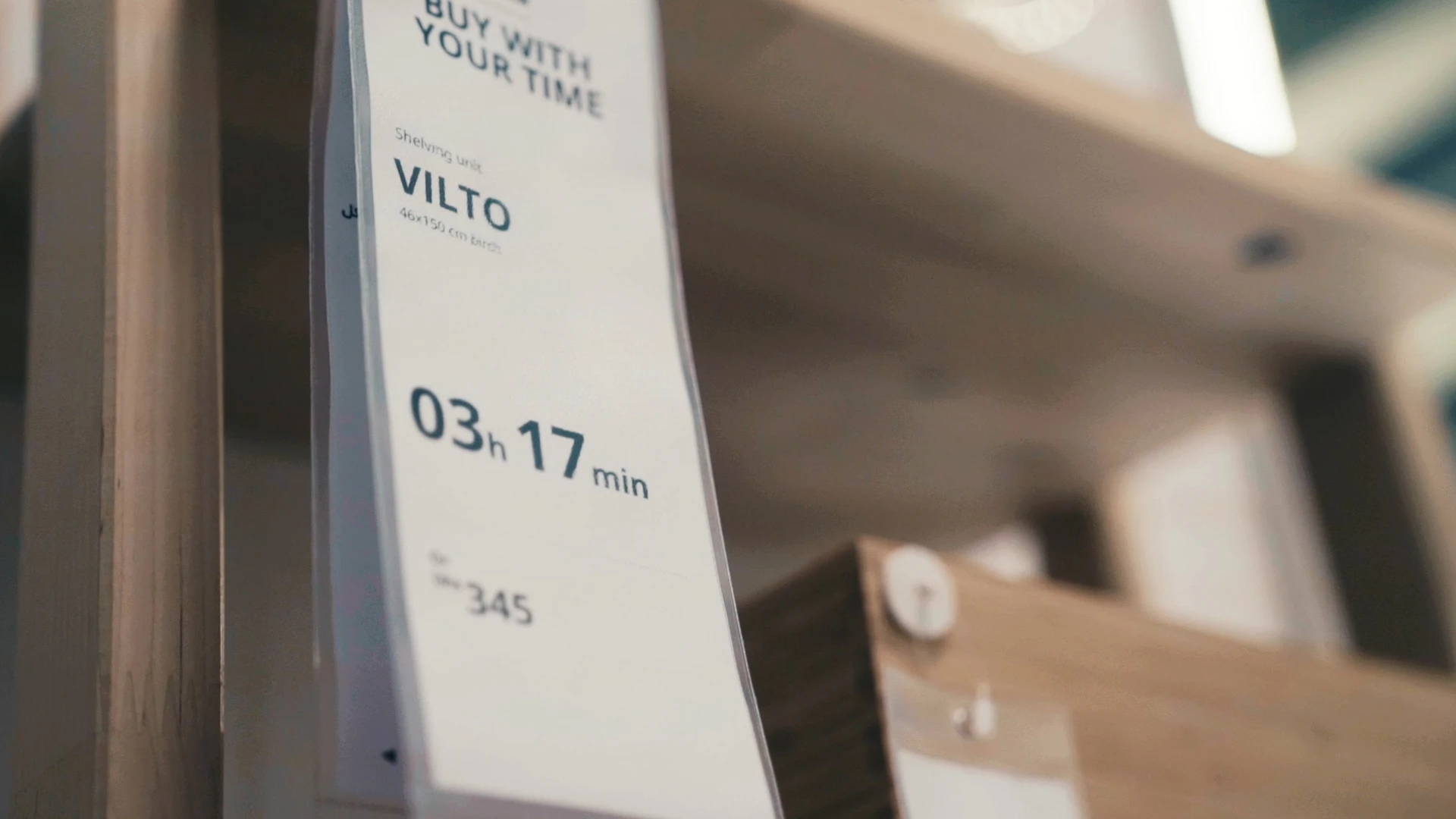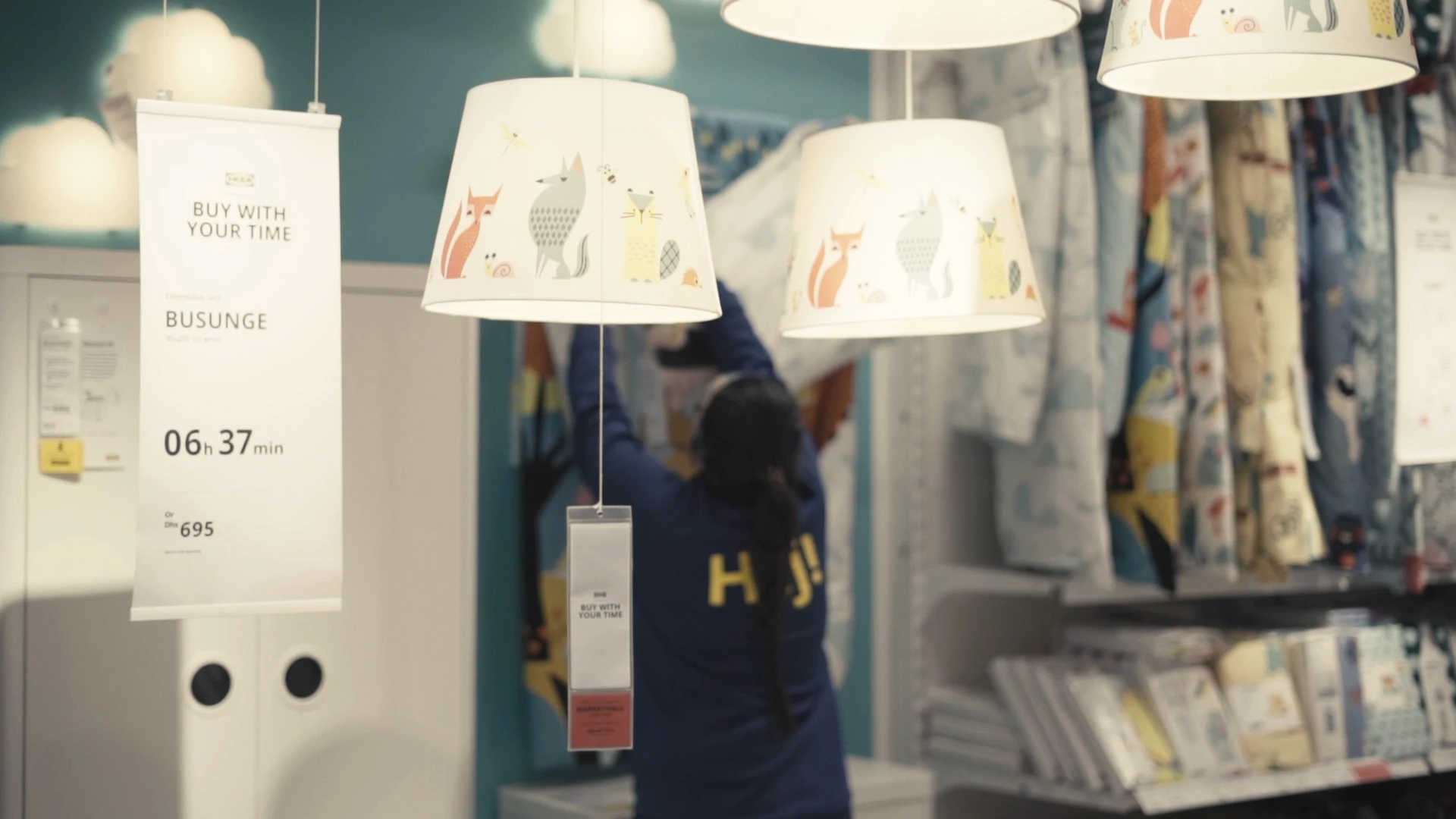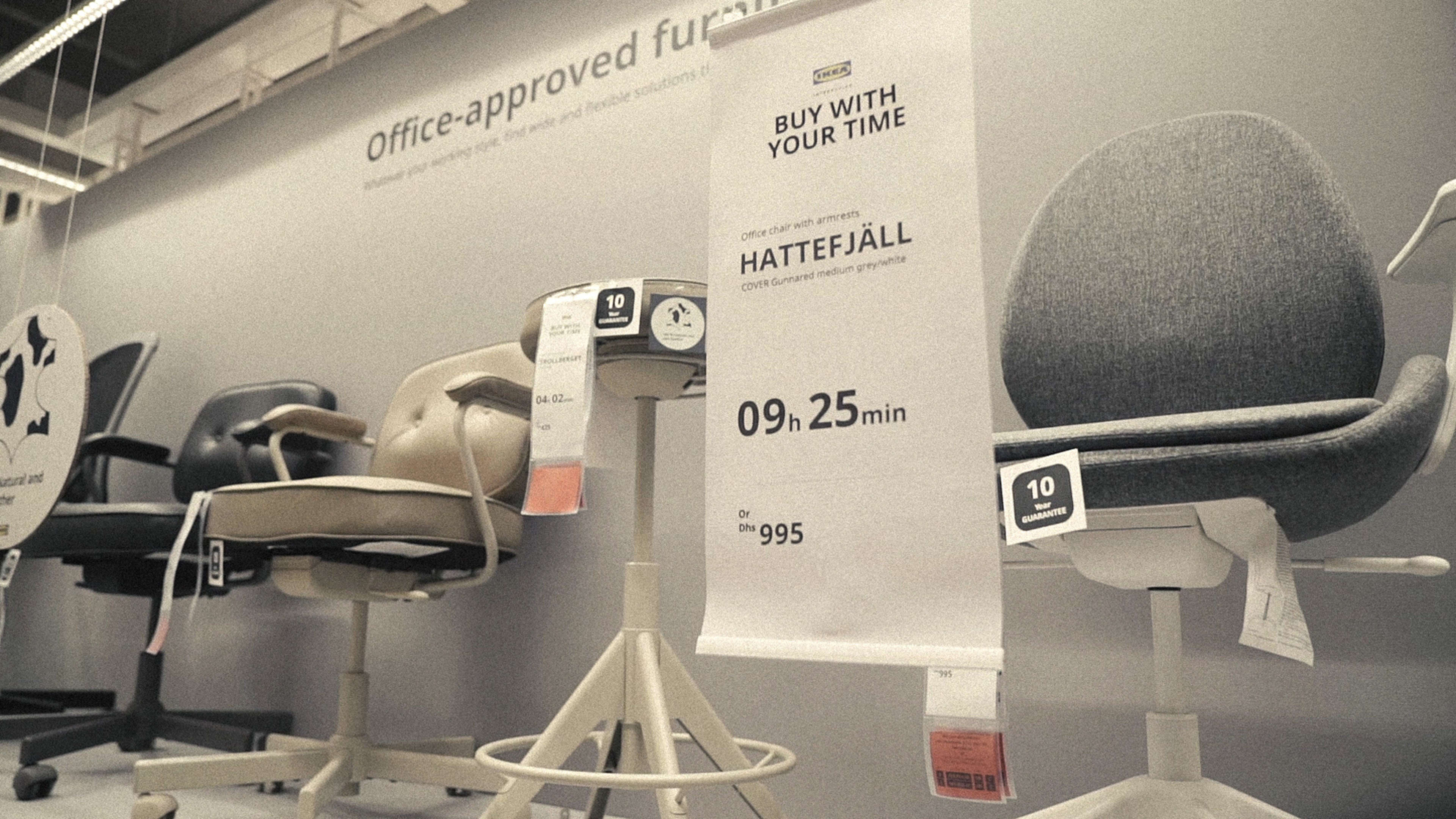When Ikea recently opened its second store in Dubai, it was asking customers to do a lot: They had to drive an hour south outside the city to Jebel Ali, through a literal desert, just to reach that blue oasis filled with affordable, Scandinavian home furnishings.
This at a time when traveling to Ikea’s warehouses has become increasingly unappealing to a convenience-based society, leading the chain to invest more into its digital tools and smaller stores inside cities. But partnering with Memac Oglivy, Ikea came up with an unusual promotion: It allowed users to pay for items with the time they spent commuting to the store.
How did that work? The team referenced the average hourly wage for someone in Dubai is 105 AED/hour, or about $29/hour. That gave them a fair metric for what someone’s time was worth. Then when a customer was checking out, the cashier asked to check the Google Maps app on their phone. Looking at the Trips tab, the cashier could easily see the length of the person’s recent commute to the Ikea store, and then convert the trip to dollars and cents, since every minute is worth 1.75 AED, or 48¢, of a resident’s time.

As Fernando Gonzalez, copywriter on the campaign explained to us, most people traveled about an hour as was expected, and no one blindsided the clerks with a nine-hour trip to walk away with a free living room of furniture.
One question I have: What did Ikea do with the data? Did they collect home addresses, or are they building some sort of database out of the information? Apparently not. Clerks simply glanced at shoppers’ phones, calculated the discount, then moved on with the transaction.
Note how simple and transparent the act of consent was in this circumstance: Customers could opt into the promotion face-to-face. Then they could see with their own eyes what Ikea was digging for, and when it was done.

But if Ikea had recorded the trip data and—why stop there?—asked shoppers for the make and model of their vehicle, or how many kids they had, chances are good people would have agreed to this, too, because Ikea was offering a strong incentive to share the data: It was literally paying people to do so. Today, we’re paid for our data indirectly. Google offers free web searching, document tools, and Gmail and in exchange, it is running a spy ad network silently in the background. Facebook runs the same scheme as it hosts messages and photos from frenemies and family, then trails us around the web afterward.
Imagine if these services charged us just as Ikea would if we bought a chair or a desk, but if we wanted to share our data, they would pay us? They wouldn’t seem like spies anymore. They’d be more like benevolent check-writers, rescuing us from their own fees.
Recognize your brand’s excellence by applying to this year’s Brands That Matter Awards before the early-rate deadline, May 3.
